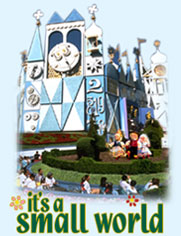
|
||
|
|
Basics
Start Here
Anglicans Believe ...
The Prayer Book
The Bible
News
News Centre
News Archive
Newspapers Online
Official Publications
Resources
Resources A to Z, including
Biblical Study
Book of Common Prayer
Books and Magazines
Exchanges
Events
Liturgy
Music
Religious Orders
Preaching
Theology
Youth
Worldwide Anglicanism
Anglican Communion
In Full Communion
Not in the Communion
Dioceses and Parishes
Africa
Australia
Canada
England
Europe
Ireland
Japan
New Zealand
Scotland
USA
Wales
World
Anglicans Online
Archives
Add a Site to AO
Tell Us What You Think
Link to AO
Staff
Awards and Publicity
Beginnings, AO Today
Our Sponsors
Hallo again to all.
If you read nothing else this week, read the essay by Andrew Sullivan in this week's New York Times magazine. We read it during our weekly work on Anglicans Online, and then continued about our normal process of finding web sites of Anglican resources, finding Anglican news, and reporting on the public behaviour of prominent Anglicans. But then we rather stopped in our tracks. We weren't quite sure how to report that the Bishop 'Pro Tempore' of the Diocese of Washington was taking the leading role in press coverage of a terror event that happened not in her diocese, but in the neighbouring Diocese of Virginia. (We have long since stopped fussing that in the Anglican world there are some 600 diocesan bishops, 200 suffragan bishops, a few dozen coadjutor bishops, and one pro tempore bishop.) Nobody seemed to notice that the bishop of one diocese was taking the lead in publicity for an event that happened in another.
This blurring of the geographic boundaries of dioceses has been helped along by England's flying bishops, by other countries sending bishops to the USA as missionaries, and by the geographic overlap in Europe of the Diocese in Europe and the Convocation of American Churches in Europe. Administrative boundaries within our communion are becoming more porous with each passing year. Then we remembered Andrew Sullivan's sentences:
The "crusade" America is alleged to be leading is not against Arabs but against the Islamic nation, which spans many ethnicities. This nation knows no nation-states as they actually exist in the region—which is why this form of Islamic fundamentalism is also so worrying to the rulers of many Middle Eastern states.
 |
|
|
So the erosion of traditional geographic boundaries isn't just happening in the Anglican church or in the countries to which people emigrate. It's everywhere.
A thousand years ago, nearly everyone lived and died within walking distance of the place where they were born; faith communities and physical communities were identical, and organisation was simple. After decades of mass migration, rail travel, air travel, global television, transoceanic telephone calls, and global email, it is not just possible for communities to transcend physical locales: it is the norm.
Anglicans Online is, of course, part of the problem. We make it easy for people in one country to pay attention to local church activities in another country. We help blur the traditional geographic boundaries. We are always astonished at the number of diocesan web pages out there that make a big deal out of deaneries. To find a certain church in a certain diocese, you must first know what deanery it's in. This concept seems to be dying rapidly; in general, nobody outside a diocesan office cares what a deanery is. We wonder how long it will be before dioceses will go the way of deaneries, and bishops will have a see that is more virtual than physical.
Since you are part of this virtual world, you should enjoy it. We have links to about 5000 parish sites around the world. Pick some at random and visit them. Read about bake sales in a place you've never been. Read prayers for people you'll never meet. See pictures of church buildings that look so unlike yours that you can hardly believe that they are churches.
This is global Anglicanism. It's part of global society, and we rather like it.
See you next week.

|
 |
| Cynthia
McFarland cmcf@anglicansonline.org |
Brian Reid reid@anglicansonline.org |
Last updated: 7 October 2001
URL: http://anglicansonline.org/